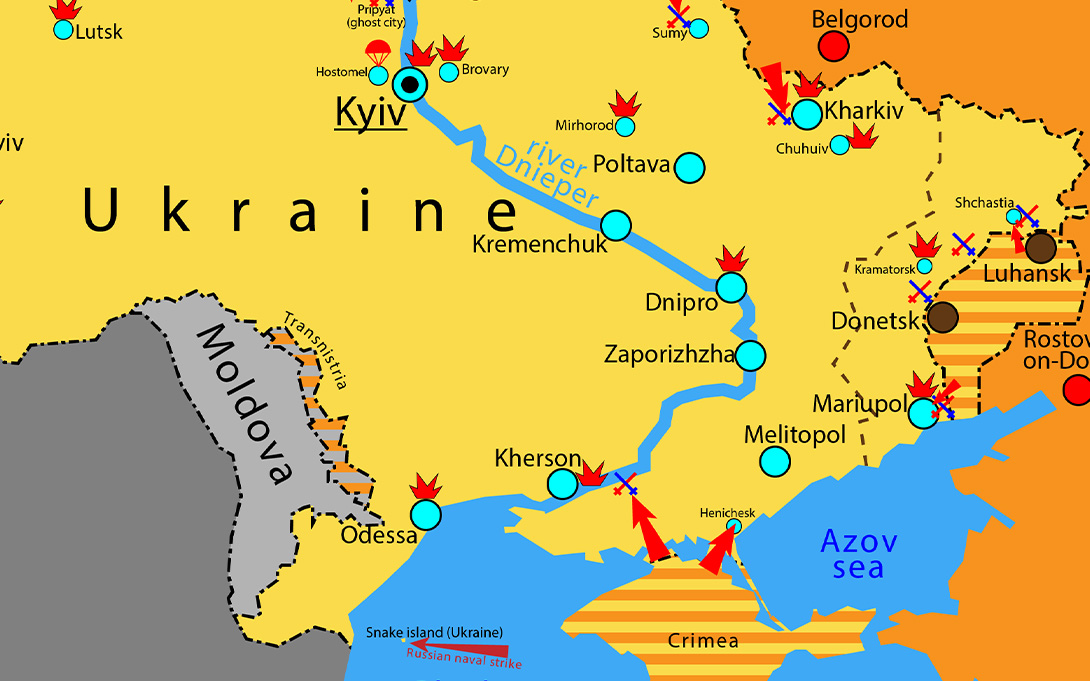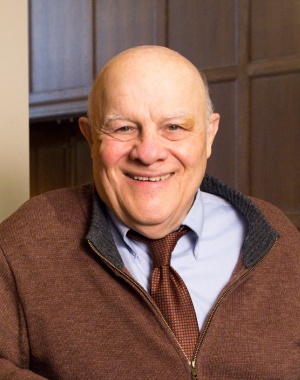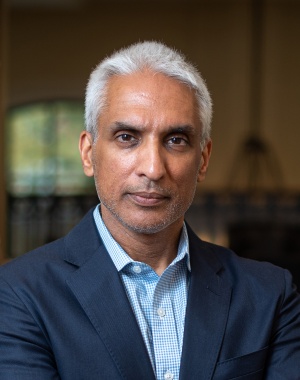
University of Michigan Ford School of Public Policy experts can discuss Russia's full-scale attack on Ukraine and the ensuing war as the one-year anniversary approaches.
Javed Ali, associate professor of practice at the Ford School, is a former senior U.S. government counterterrorism official.
"As a result of the staggering number of battlefield losses over the last year, Putin is likely to adjust the campaign with the recognition that the Russian military cannot continue to operate at the current rate," he said.
"Given the increased pressure Putin will put on his commanders to achieve concrete objectives, it is more likely he will authorize more aggressive cyber operations — which to date have not been as significant or effective as some experts thought given Russia's past use of cyberattacks against Ukraine — or unconventional warfare methods like sabotage and assassinations in Western countries supporting Ukraine as additional tools.
"Putin will also very likely increase efforts to divide the West and foster discontent within Ukraine through propaganda and disinformation, and deepen relationships with countries like China, Iran, North Korea and India that to date have allowed Russia to withstand setbacks on the military front and blunt the impact of numerous economic sanctions and trade restrictions."
Contact: [email protected]
Melvyn Levitsky, professor of international policy and practice at the Ford School, is a retired U.S. ambassador and served as officer-in-charge of U.S.-Soviet bilateral relations and political officer at the U.S. Embassy in Moscow. He can discuss Russia's history, politics, international relations and diplomacy.
"It is hard to say how the war will likely pan out in the coming weeks. So far, Russia's plans for a quick victory have been thwarted," he said. "We have to remember the Soviet invasion of Afghanistan. The Kremlin experienced substantial public opposition when the body bags began returning home in droves.
"There is no endgame in sight. Neither side will be able to declare victory, though a settlement could be constructed that allows both to declare that their interests were advanced. Russia's relations with the West will be shaky in the future. The West will be even more wary of Russian policies. Western Europe will try to shore itself off any dependence on Russia for energy sources."
Contact: [email protected]
John Ciorciari is an associate professor of public policy and director of the Ford School's International Policy Center and Weiser Diplomacy Center.
"A year after the Russian invasion, the geopolitical divides surrounding the Ukraine war show no sign of abating," he said. "NATO and the European Union have shown greater cohesion than might have been expected, and Biden's surprise visit to Kyiv is just one of many indications that Western support for Ukraine will remain strong in the foreseeable future.
"At the same time, most governments around the world have either stood on the sidelines or quietly abetted the Russian war effort. Most governments in Asia, Africa, the Middle East and Latin America have refused to join in Western sanctions, including major economies such as China, India and Brazil. Despite Russian atrocities and the terrible toll of the war, many observers in the Global South continue to view the war as a conflict between Russia and the West rather than a flagrant violation of Ukraine's sovereignty and territorial integrity.
"The South African government's decision to host naval exercises with Russia is the latest indication that nominally nonaligned countries will continue to help Russia withstand sanctions and diplomatic ostracism from the West. For many governments — and especially authoritarian ones — the prospect of continued Chinese and Russian support evidently outweighs concerns about international norms designed to help protect vulnerable states from aggression. That bodes poorly for peace, suggesting that Russia may be able to sustain its military campaign for some time to come."
Contact: [email protected]

